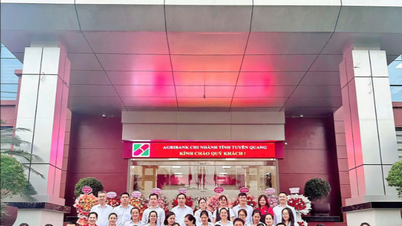
Starting in 2024, Singapore's Changi Airport will implement automated, passport-free customs clearance. (Photo: CNA)
Communications Minister Josephine Teo said that several changes to the country's Immigration Act were passed on September 18. "Singapore will be among the first few countries in the world to introduce an automated, passport-free entry process," she said.
Biometric technology, along with facial recognition software, is already used to some extent at Changi Airport in automated lanes at immigration checkpoints.
But the upcoming changes will “reduce the need for passengers to repeatedly present their travel documents at immigration checkpoints and allow for more seamless and convenient clearance,” said Ms Josephine Teo.
Biometrics will be used to create a “unique authentication token” that passengers can use at various automated check-in points – from baggage drop to immigration and boarding. This eliminates the need for physical travel documents such as boarding passes and passports.
On data privacy and cybersecurity, only Singapore companies can undertake IT projects involving the Immigration and Checkpoints Authority (ICA), the head of Singapore’s Ministry of Communications further explained. Their employees must undergo security checks and be licensed before they can work on the project. Vendors will be bound by a non-disclosure agreement and could face criminal liability if they violate it.
For biometric clearance departures from Changi Airport, Changi Airport Group (CAG) will be bound by a data sharing agreement with ICA.
Passenger data will be encrypted and passed through secure data exchange gateways. Only the Home Affairs Minister will approve requests for access and disclosure of data for purposes limited to those stated in the Singapore Immigration Act, such as criminal law enforcement.
Regarding the possibility of system disruptions such as power outages, Ms Josephine Teo said that biometric automated systems have “failover capabilities” such as an uninterruptible power supply so that travellers can continue to use the automated gates even during power outages.
Or for passengers who are unable to provide certain biometric information or are not digitally savvy, they can still get assistance from airport staff to clear customs.
Frequently ranked as the world's best airport and also one of the busiest, Singapore's Changi Airport serves more than 100 airlines flying to 400 cities in around 100 countries and territories worldwide.
In June this year, the airport handled 5.12 million passengers, surpassing the 5 million mark for the first time since January 2020, when the Covid-19 pandemic struck.
Changi Airport is expecting to return to pre-pandemic levels of passenger and air traffic. Automated biometric check-in is expected to help flights run more smoothly.
“Our immigration system must be able to manage the growing number of passengers effectively and deliver a positive clearance experience, while ensuring our security,” said Singapore’s Communications Minister.
The future of world air transport
Seamless transportation is gaining popularity around the world and biometric identification technology could soon be the future of the global air transport industry, observers say.
In 2018, Dubai International Airport introduced biometric “Smart Gates,” which use facial recognition to verify a passenger’s identity in just five seconds. Passengers are also allowed to use fingerprints or facial scans for authentication instead of relying on physical passports.
Elsewhere in the world, facial recognition technology has been used to some extent at Hong Kong International Airport (China), Tokyo Narita International Airport and Tokyo Haneda International Airport (Japan), Indira Gandhi International in Delhi (India), London Heathrow (UK) and Paris Charles de Gaulle (France), among others.
The digital identity, which complies with International Civil Aviation Organization (ICAO) standards in Aruba, allows passengers to travel using a secure digital version of their passport on their mobile phone.
In the US, major airlines such as American Airlines, United and Delta have been testing biometric check-in, baggage drop and boarding gate services at select airports over the past few years.
Source




































































































Comment (0)